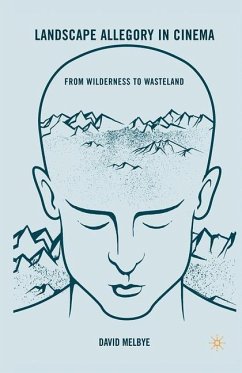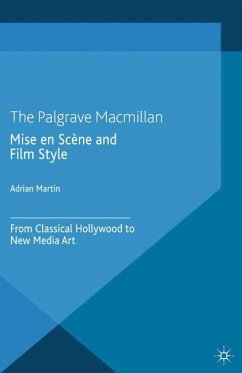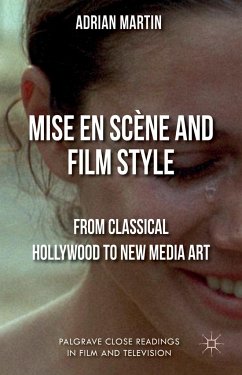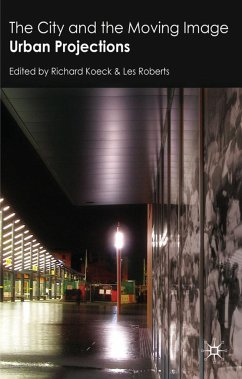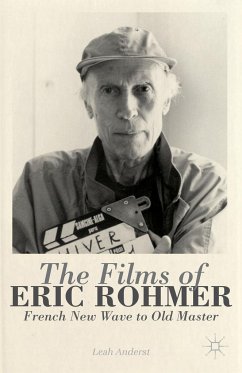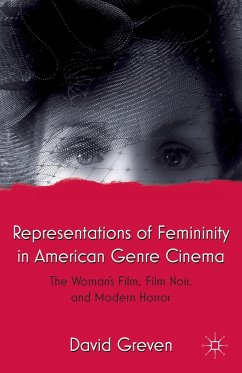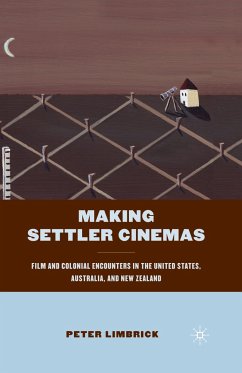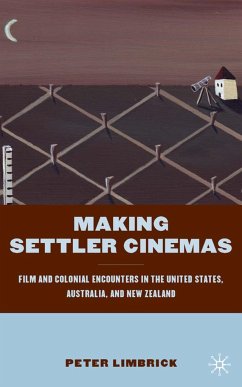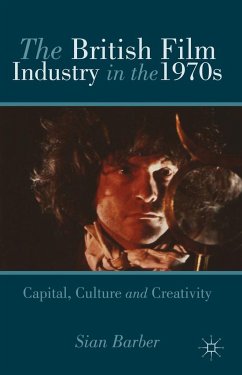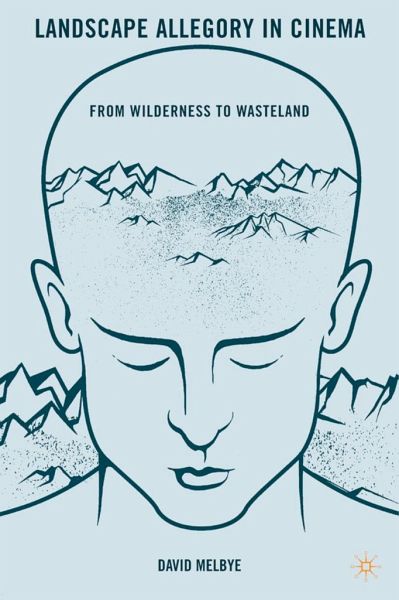
Versandkostenfrei!
Versandfertig in 6-10 Tagen
Weitere Ausgaben:

PAYBACK Punkte
19 °P sammeln!





This study seeks to understand the form of cinematic space referred to as 'the landscape of the mind,' in which natural, outdoor settings serve as outward manifestations of characters' inner subjective states.
DAVID MELBYE is Lecturer in the Department of Media and Cultural Studies at University of California, USA.
Produktdetails
- Verlag: Palgrave Macmillan / Palgrave Macmillan US / Springer Palgrave Macmillan
- Artikelnr. des Verlages: 978-0-230-10407-5
- 2010
- Seitenzahl: 207
- Erscheinungstermin: 18. August 2010
- Englisch
- Abmessung: 211mm x 140mm x 15mm
- Gewicht: 360g
- ISBN-13: 9780230104075
- ISBN-10: 023010407X
- Artikelnr.: 29927854
Herstellerkennzeichnung
Libri GmbH
Europaallee 1
36244 Bad Hersfeld
gpsr@libri.de
"Melbye's Landscape Allegory in Cinema addresses a significant gap in film studies by focusing on the role that landscape plays in film from silents through the '70's. By examining the role of landscape in painting, photography and literature, as well as film, Melbye has made the case for the symbolic role of landscape in twentieth-century cinema." - Robert Folkenflik, Edward A. Dickson Emeritus Professor of English, University of California, Irvine
"In his autobiography, Kurosawa Akira, claimed that in his classic Rashomon he had used the forest wilderness around Nara to figure 'people going astray in the thickets of their hearts.' Such an allegorical use of landscape has regularly fascinated film semioticians, but David Melbye is
"In his autobiography, Kurosawa Akira, claimed that in his classic Rashomon he had used the forest wilderness around Nara to figure 'people going astray in the thickets of their hearts.' Such an allegorical use of landscape has regularly fascinated film semioticians, but David Melbye is
Mehr anzeigen
the first to provide a systematic overview of the topic. His succinct but penetrating survey of the use of landscape in classical literature and in European and US painting demonstrates how representations of the natural world could be simultaneously realistic and idealized. In this, they provide the basis for cinema's use of landscape as itself a protagonist in narrative, rather than merely its context. Melbye's analysis continues though early forms of cinema, but arrives at its main concerns in films of social critique, especially in the 1960s and 1970s, both avant-garde and industrial. Ranging from Bosch to Brakhage, from Ovid's Metamorphoses to Lawrence of Arabia and Vanishing Point, his ambitious and persuasive study is sure to beattractive to film scholars and popular audiences alike." - David E. James, Professor of Critical Studies, School of Cinematic Arts, University of Southern California
Schließen
Für dieses Produkt wurde noch keine Bewertung abgegeben. Wir würden uns sehr freuen, wenn du die erste Bewertung schreibst!
Eine Bewertung schreiben
Eine Bewertung schreiben
Andere Kunden interessierten sich für




